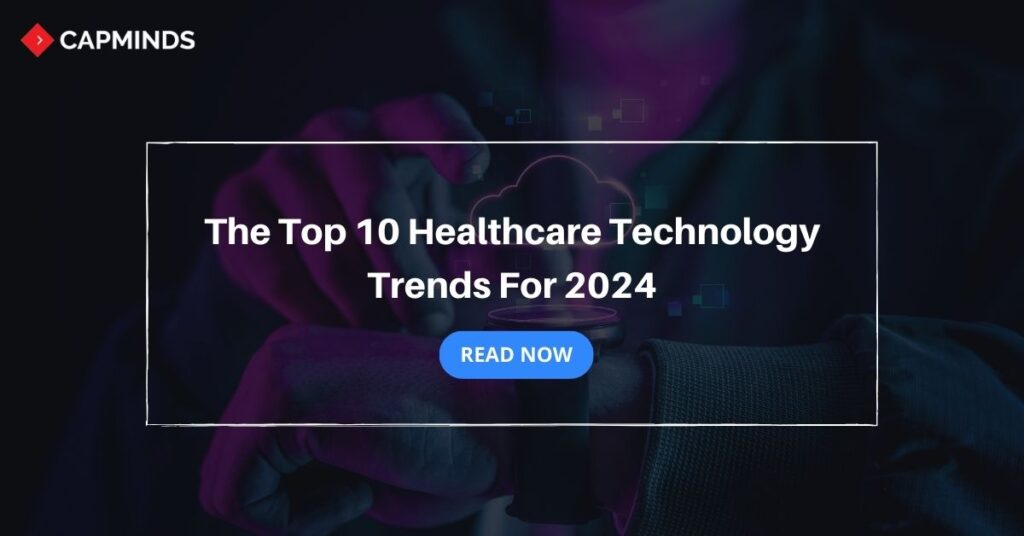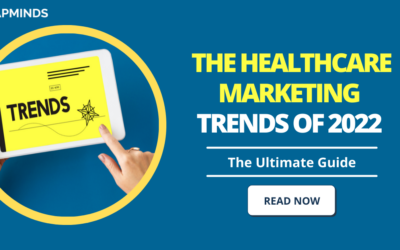The Top 10 Healthcare Technology Trends For 2025
The global healthcare industry, a trillion-dollar behemoth, stands at the precipice of a seismic shift. Fueled by breakneck technological advancements, 2024 promises to be a year of unprecedented transformation, redefining how we diagnose, treat, and prevent disease.
The lines between sci-fi and reality are blurring, with AI-powered surgeons, virtual wards spanning continents, and personalized medicine tailored to your unique genetic blueprint no longer mere futuristic fables. Here are 10 key healthcare technology trends poised to define the future of healthcare in the coming year.
RELATED: 10 Best Medical Practice Management Tips to Slay in 2024
1. AI-powered Workflows and Automation:
Artificial intelligence (AI) is no longer a futuristic buzzword; it’s actively transforming healthcare workflows. Expect to see a surge in AI-powered solutions for tasks like:
- Medical image analysis: AI algorithms can analyze X-rays, CT scans, and MRIs with astonishing accuracy, aiding in faster diagnoses and reducing human error.
- Robotic surgery: AI-powered surgical robots are enhancing precision and minimizing invasiveness in procedures, leading to quicker recovery times and improved patient outcomes.
- Administrative tasks: AI can automate tedious tasks like scheduling appointments, transcribing medical records, and managing billing, freeing up healthcare professionals to focus on patient care.
2. Virtual Collaboration and Expertise Sharing:
The healthcare workforce faces constant pressure, often struggling with staffing shortages and limited access to specialized expertise. This is where virtual collaboration tools powered by telemedicine and remote monitoring come into play. Expect to see:
- Tele-ICU and virtual ward programs: Remote intensivists and specialists can provide real-time support and guidance to on-site staff, improving care quality and efficiency in geographically dispersed locations.
- Virtual consultations and remote patient monitoring: Video conferencing and wearable devices will enable doctors to consult with patients and monitor their health remotely, improving access to care in rural areas and for patients with mobility limitations.
- Cloud-based knowledge sharing platforms: Secure online platforms will facilitate collaboration and knowledge sharing among healthcare professionals, democratizing access to expertise and best practices.
3. Integrated Diagnostics and Multidisciplinary Collaboration:
Traditionally, medical diagnosis and treatment have often been siloed within specialty domains. However, 2024 will see a shift towards:
- Integrated diagnostic platforms: Combining data from various diagnostic tools like blood tests, imaging scans, and genetic analysis will provide a holistic view of a patient’s health, leading to more accurate diagnoses and personalized treatment plans.
- Collaborative care models: Teams of healthcare professionals from different specialties will work together to create comprehensive care plans for patients, ensuring continuity and coordination of care throughout the treatment journey.
- Patient-centered data platforms: Patients will have greater access to their medical data, empowering them to be active participants in their healthcare decisions.
4. Enhanced Data Interoperability and Standardization:
Data fragmentation remains a major obstacle in healthcare. In 2024, we can expect:
- Standardization of healthcare data formats: Common data models and exchange protocols will allow seamless data sharing between different healthcare systems and devices, breaking down information silos and enabling better analysis and insights.
- Interoperable platforms and applications: Healthcare apps and devices will be designed to seamlessly share data and electronic health records (EHRs), improving clinical decision-making and care coordination.
- Blockchain technology: Secure and transparent blockchain-based solutions can revolutionize data management in healthcare, ensuring patient privacy and control over their medical information.
5. Predictive Analytics and Risk Prevention:
The power of advanced analytics will take center stage in 2024:
- Predictive models: AI algorithms will analyze vast amounts of patient data to identify individuals at risk for developing certain diseases, enabling early intervention and preventive measures.
- Personalized risk assessments: Patients will receive customized risk assessments based on their individual health data and family history, empowering them to make informed decisions about their health.
- Population health management: Public health agencies will leverage predictive analytics to identify at-risk populations and target interventions more effectively, reducing the burden of chronic diseases.
6. Tackling Health Disparities with Technology:
Technology can play a crucial role in addressing the gap in healthcare access and outcomes between different populations. 2024 will see:
- Culturally and linguistically sensitive telehealth platforms: Making healthcare more accessible to diverse communities by removing language barriers and tailoring information to cultural contexts.
- Mobile health apps for underserved populations: Providing affordable and accessible tools for managing chronic diseases, promoting healthy behaviors, and connecting patients with healthcare resources.
- AI-powered solutions for social determinants of health: Addressing the broader social and economic factors that impact health outcomes, such as poverty, housing insecurity, and access to nutritious food. Through analysis of community data and targeted interventions, technology can help bridge the gap in health equity.
7. Smart Technology for Healthy Habits and Preventative Care:
Empowering individuals to take control of their health is paramount. In 2024, expect:
- Gamified fitness trackers and wearables: Engaging and personalized apps will turn everyday activities into fun and rewarding experiences, encouraging healthy habits and adherence to treatment plans.
- AI-powered virtual health coaches: Smart chatbots and virtual assistants will provide personalized health guidance, reminders, and emotional support, helping individuals maintain healthy lifestyles and manage chronic conditions.
- Remote patient monitoring for preventive care: Wearable devices and sensors will continuously collect data on vital signs, sleep patterns, and activity levels, allowing for early detection of potential health issues and proactive preventive measures.
8. Sustainable Healthcare and Green Technology:
Healthcare’s environmental impact is coming under increasing scrutiny. In 2024:
- Energy-efficient medical devices and infrastructure: Hospitals and clinics will adopt greener technologies to reduce their energy consumption and carbon footprint.
- Telehealth and remote care solutions: By decreasing the need for travel and in-person consultations, virtual care can play a significant role in reducing healthcare’s environmental impact.
- Sustainable supply chains and waste management: Healthcare organizations will prioritize eco-friendly materials and resource management practices to minimize waste and environmental pollution.
9. Cybersecurity and Data Privacy in a Connected World:
As healthcare becomes increasingly reliant on technology, data security and patient privacy become even more critical. In 2024:
- Strengthened cybersecurity measures: Robust data encryption, secure communication protocols, and advanced threat detection systems will be crucial to protect sensitive patient information.
- Patient control over data: Individuals will have greater control over their medical data, with tools to manage its access, sharing, and usage.
- Ethical considerations of AI and data analytics: Clear ethical guidelines and regulatory frameworks will be essential to ensure the responsible and fair use of AI and data in healthcare.
10. The Rise of the “Quantified Self” and Personalized Medicine:
With more individuals actively tracking their health data, 2024 will see a growing emphasis on:
- Personalized medicine: Treatment plans tailored to individual genetic profiles, biological markers, and lifestyle factors will lead to more effective and targeted interventions.
- “Quantified self” data for personalized insights: Individuals will leverage their health data to gain deeper insights into their health and make informed decisions about their well-being.
- Empowering patients through data ownership and analysis: Tools and platforms will allow patients to access, analyze, and interpret their health data, fostering active participation in their healthcare journey.
RELATED: Revolutionizing Home Healthcare: How RPM Transforms Lives in the US
In 2024, the healthcare industry will leverage new technologies and treatment approaches like AI, telehealth, retail clinics, and mental health services to deliver more consumer-centered, effective, and convenient care to all patients. The consumerization of healthcare will empower patients to take control of their health.
Don’t Get Left Behind: Profit from the Next Wave of Health Innovation With CapMinds
The future of healthcare is digital, and technology will transform medicine in 2024. Are you ready to take advantage of the incredible innovations on the horizon?
Now is the moment to gain competitive insights so your healthcare organization can become an industry trailblazer. We provide consulting services to help you successfully navigate the digital health landscape.
CapMinds experts can assess your technology infrastructure and develop a data-driven strategy tailored to your business goals. We can assist with activities ranging from cloud implementation to cybersecurity enhancements – ensuring you have a future-ready foundation.




